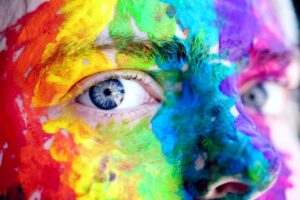Think You Know Neurodivergence? Debunking 25 Popular Myths About Autism

Media has also played a role in creating confusion and untruths about neurodiversity, which harms awareness and acceptance of differences overall.
But it’s time to debunk these myths and break free from the stereotypes about autism spectrum disorder (ASD). So, what are the top 25 autism stigmas and stereotypes that have plagued our perception?
Here are answers and reality checks to commonly asked questions, with the hope that debunking these misguided beliefs will help create a more inclusive world for those with autism.
Debunking These 25 Top Stereotypes About Autism Neurodivergence
Is autism caused by bad parenting?
This myth has been widely circulated, but there is no evidence that autism is caused by parenting styles or techniques. Autism has been conclusively established as a neurodevelopmental condition with biological and genetic factors. While parenting a child with autism comes with unique challenges, parents should not feel responsible or blamed for their child’s condition.
There are many loving, capable parents of autistic children. Autism symptoms arise from differences in the brain, not the home environment.
Are people with autism antisocial?
This is a common misconception, but most autistic people do not lack interest in social connections. However, due to challenges with communication, perspective-taking, and sensory sensitivities, autistic people may find it more difficult to initiate conversations, pick up on social cues, or feel comfortable in noisy social situations.
This can appear withdrawn or antisocial, but with greater understanding and appropriate accommodations, many autistic people can and do have satisfying relationships and social lives. They simply navigate socializing differently.
Do people with autism lack empathy?
Again, this myth oversimplifies a complex issue. Autistic individuals often have as much capacity for empathy as anyone else. However, due to challenges reading emotional cues through facial expressions, body language, and vocal tones, autistic people may demonstrate empathy in less expected ways. They tend to empathize based on someone directly stating their feelings, rather than inferring unspoken emotions. With guidance, autistic people absolutely can and do show caring, compassion, and concern for others.
Are people with autism violent?
There is no evidence that autistic individuals are prone to violence or pose a danger to others. In fact, people on the autism spectrum are far more likely to be the victims of bullying, abuse, and discrimination due to difficulties interpreting social cues and navigating interpersonal conflicts. Any claims that autistic people lack empathy, are detached from others, or tend to be aggressive or even violent criminals are baseless stereotypes. Autistic individuals deserve acceptance, support and understanding, not harmful assumptions.
Do vaccines cause autism?
This myth about vaccines and autism originated from a small, fraudulent study that was fully retracted and debunked. No credible scientific evidence links vaccines to autism in any way.
Yet this misinformation caused many parents to fear vaccines, leading to reduced vaccination rates and outbreaks of otherwise preventable diseases.
Major public health organizations completely reject any connection between autism and vaccines. Autism has a natural genetic component and environmental risk factors that require more research. But parents should Vaccinate without worrying about autism risks.
Is autism a mental illness?
Autism is best understood as a developmental disability, not a mental illness. It arises from neurological differences in the brain that affect social communication, behavior, sensory processing and other functions. Autism involves challenges, but not fundamental defects of character. Autistic individuals may have additional mental health conditions like anxiety, OCD or depression. But autism itself reflects a different, not defective, brain wiring — a naturally occurring variation in the human experience. Understanding autism as a developmental disability, not illness, helps combat stigma.
Do people with autism want to be cured?
Perspectives on this vary greatly across the autism community. Some people do seek treatments aimed at reducing autistic traits and challenges. They hope to become more socially adept and independent. However, many self-advocates in the autism rights movement oppose the notion they need a “cure.”
They believe autism is a natural part of human neurological diversity that should be accepted and accommodated, not eliminated. They advocate embracing neurodiversity and providing support to gain skills, not make autistic people “normal.” There is no consensus, but the autism community includes a wide range of perspectives on managing versus fundamentally changing autism.
Is autism becoming more common?
Autism diagnosis rates have been steadily rising over the past few decades. However, there is debate over whether this reflects a true increase in autism’s prevalence or improved awareness and expanded diagnostic criteria. The specific causes of rising rates are unclear.
Likely it involves a combination of greater awareness, better identification, broadening diagnostic criteria, and some real but unexplained increase in occurrence. The role of environmental risk factors needs more research. But it is clear that more people are being diagnosed on the spectrum and given support services at younger ages.
Do people with autism have low IQs?
This assumption is a myth. Individuals on the autism spectrum have the full range of IQ levels, from intellectually disabled to gifted. Many autistic people have average to above average intelligence. However, there is research indicating about a third of people with autism also have an intellectual disability. Autism exists separately from intellectual ability. There are intelligent and cognitively impaired people on the spectrum. Making assumptions about intelligence based on autism is misguided. Support should be tailored to each person’s abilities.
Are boys more likely to have autism?
Yes, current statistics consistently show around 4 times as many boys diagnosed with autism compared to girls. However, there is growing evidence that autistic girls are underdiagnosed and exhibit somewhat different symptoms, including masking.
Autism may manifest less overtly in girls, appearing as quietness, anxiety, or selective mutism rather than disruptive behavior. Additionally, notions of autism being a “male” disorder lead to gender disparities. But autism biology likely does not discriminate by gender.
Experts advise evaluating both girls and boys for possible undiagnosed autism to provide needed support.
Do autistic people lack creativity?
This myth wrongly assumes that autism dampens creativity. In fact, many autistic people are exceptionally creative and original thinkers. Strengths in visual thinking, outside-the-box problem solving, attention to detail, memory, and absorbing information deeply can fuel innovation in many fields. Famous innovators like Albert Einstein, Steve Jobs, and Elon Musk show that autism traits like intense focus can spark creativity. Of course, not all autistic people are uniquely creative. But the neurodiversity of autism should not be underestimated as a source of original ideas and inventions.
Is autism a childhood disorder?
Autism is not a disorder confined to childhood. It is a lifelong neurological condition that manifests across the lifespan, from toddlerhood into and throughout adulthood. However, autism may look different at different ages. Early intervention for children is vital. But support for autistic teens transitioning to adulthood and services for autistic adults are also critically needed. Autistic adults may still need help with social skills, independent living, mental health, and employment accommodations. Autism diagnosis and support should not stop in childhood.
Are autistic people unable to live independently?
This assumption overlooks the diversity within the autism spectrum. Many autistic adults are fully capable of living independently, especially with appropriate supports and accommodations tailored to their needs. These may include things like visual supports, routine, reminders, and assistance accessing services. However, some individuals with higher support needs may require assisted living or residential services.
Independent living abilities span a wide range based on each person’s support requirements. With the right services and technologies, many autistic adults can thrive while living autonomously.
Is autism a new condition?
While autism has gained greater attention in recent years, it is not a new or modern condition. In fact, accounts of autistic traits can be traced back centuries in historical records.
The first clinical account of autistic symptoms was published by Dr. Leo Kanner in 1943. But the word “autism” was coined in 1911 by Swiss psychiatrist Eugen Bleuler to describe social withdrawal noted in schizophrenia. The lack of eye contact, repetitive behaviors, and speech differences characterizing autism have likely always existed, though not always recognized as a distinct condition. Our understanding continues to evolve.
READ MORE: History of Autism – Revealing Shocking Mysteries From the Past
Do autistic people lack emotion?
This myth stems from difficulties autistic people may have expressing and regulating emotions, not an inability to feel them. Autistic individuals experience the full range of human emotions just like anyone else. However, struggles with communicating feelings verbally and physically, sensory and social difficulties, and co-occurring conditions like anxiety or depression can complicate emotional expression. With understanding and support, autistic people can find healthy ways to share emotions. But assumptions of being emotionless or robotic are misguided and harmful.
Are autistic people savants?
Savant skills, while sensationalized in media, are in fact quite rare. Only about 10% of individuals with autism possess remarkable abilities like flawless memory, mathematical calculation, or musical genius exceeding typical human levels.
The other 90% have strengths and challenges consistent with the general population. Many autistic people do show excellent focus, attention to detail, or interests in specialized topics. However, the notion that most autistic people have superhuman talents is a myth.
Extraordinary savant abilities stand out because they are exceptional, not the norm.
Do certain diets cure autism?
There are no special diets scientifically proven to remove or cure autism. However, eliminating gluten and casein has helped some children with autism who experience gastrointestinal difficulties, food sensitivities, or allergies. A balanced, vitamin-rich diet can also help manage accompanying health issues.
But families should be wary of exaggerated claims that restrictive diets will magically cure their child’s autism. At best, dietary changes serve as complementary therapies to address symptoms, not the underlying cause. Support should focus on skills development, communication and forming meaningful relationships.
Is autism a disability?
Yes, autism is formally classified as a developmental disability. The social communication challenges, sensory issues, repetitive behaviors and other traits inherent to autism can make some aspects of life more difficult. But structures can be adjusted to accommodate these differences from the neurotypical norm, rather than forcing autistic people to mask their natural wiring.
With acceptance, support and reasonable accommodations, autistic people can thrive in society. But referring to autism as simply a “difference” risks denying needed disability resources. Autism fits the medical definition of a disability requiring various levels of support.
Do autistic people lack theory of mind?
Theory of mind – the ability to attribute mental states to others – is often cited as an area of challenge for autistic individuals. However, newer research indicates this may not be a core deficit of autism, but rather a downstream effect of other traits like executive dysfunction or overwhelmed sensory systems.
Many autistic people pass theory of mind tasks when other impacts are controlled. Additionally, focusing only on challenges ignores strengths in systemizing, pattern recognition and nonverbal reasoning. While theory of mind limitations exist, they likely arise from other aspects of autistic neurology rather than absent empathy.
Are autistic people a burden to society?
This harmful stereotype lacks nuance and compassion. Autistic individuals have as much to offer society as anyone else. With acceptance, inclusion and support tailored to their needs, autistic people can and do enrich their communities and live meaningful, productive lives. Society gains much from embracing neurodiversity.
Accommodations are investments that allow autistic strengths to benefit all. Additionally, studies show autistic people are rarely dangerous or violent. Assumptions of being burdens or public threats lead to prejudice. An inclusive society benefits from empowering, not marginalizing, autistic citizens.
Is autism a communication disorder?
While impacts on communication are part of autism, it encompasses more than just speech and language issues. Many autistic people also have differences in social understanding, behavior, coordination, sensory processing and cognition patterns. Reducing autism to just a communication disorder fails to capture the full experience of living on the spectrum.
Some prefer the term “social communication disorder” to acknowledge broader challenges. Communication differences are just one facet of the neurologically based variations in skills, perceptions and interactions autistic people navigate.
Do autistic people prefer to be alone?
Whether autistic people enjoy solitude varies greatly across individuals. Some autistic people genuinely prefer activities they can focus on independently. Crowds, small talk and noisy spaces may overstimulate them. However, others desperately want social connections but have difficulty initiating or maintaining relationships.
Their social motivation is strong, but anxiety, communication differences and sensory issues create barriers. Assuming all autistic people want to be alone risks missing those who require more help relating to others. Understanding each person’s unique strengths and challenges is important.
Are autistic people just weird?
Dismissing neurodivergence as “weird” is an overly simplistic judgment that can promote stigma. Autistic people may communicate, emote, and interact in unique ways based on neurocognitive differences beyond their control. Their neurological wiring leads to behaviors that seem atypical to some.
However, weirdness lies in the eye of the beholder. Broadening social acceptance of diversity promotes inclusion. Judgments of weirdness say more about the observer’s intolerance than the intrinsic character of autistic individuals. The goal should be fostering understanding, not marginalizing differences.
Do all autistic people have special talents?
It is a myth that all or most autistic individuals have rare savant skills or exceptional abilities. In reality, only about 10% demonstrate truly prodigious talents like flawless memory or musical genius that far exceed typical human capacity.
Most autistic people have a mix of strengths and challenges consistent with the general population. Many do exhibit strong focus, detail-orientation, or specialized interests. But the notion that autism automatically confers special talents underestimates the diversity on the spectrum. The perpetuation of savant stereotypes can even minimize support needs for those without rare gifts.
Can you grow out of autism?
Autism is a lifelong neurological condition that does not go away with age or development. However, autism symptoms and support needs often change across one’s lifespan, which may superficially appear like “growing out” of autism. Early intervention for children centers on communication, social, and self-regulation skills.
But support in adulthood switches to issues like employment, independent living, and mental health. Additionally, autistic people may learn to mask symptoms or navigate challenges through decades of practice. But autism itself — differences in social, sensory, and cognitive processing — persists over one’s entire life. With greater awareness and support, more autistic adults are embracing their diagnosis rather than hiding it.
If you found these questions-and-answers about behavior traits of autism spectrum disorder helpful, then you might enjoy reading more FAQs related to autism. I’d love to hear from you. Just email me at connor@myautismmind.com
Additional FAQs About Autism Spectrum Disorder
- What Are 25 Common Traits of Autism Spectrum Disorder?
- What Are The Top 25 Adult Autism Spectrum Disorder Symptoms?
- Do You Know Your Flavor of Autism Spectrum Disorders?
- Hope for the Future: Will It Transform the Autism World?
- Am I Neurodivergent? Understanding Neurodiversity and Its Value is Key
- Autism Questions: 6 FAQs You Really Want to Know
- Is Autism A Disability? Surprising Reasons for the Debate
- Alexithymia Symptoms: Is Emotional Blindness A Thing?
- Is The Absurd Plot Connecting Autism and Evolution Harmful?
 This myth about
This myth about  Yes, current statistics consistently show around 4 times as many boys diagnosed with autism compared to girls. However, there is growing evidence that
Yes, current statistics consistently show around 4 times as many boys diagnosed with autism compared to girls. However, there is growing evidence that  Savant skills, while sensationalized in media, are in fact quite rare. Only about 10% of individuals with autism possess remarkable abilities like flawless memory, mathematical calculation, or musical genius exceeding typical human levels.
Savant skills, while sensationalized in media, are in fact quite rare. Only about 10% of individuals with autism possess remarkable abilities like flawless memory, mathematical calculation, or musical genius exceeding typical human levels.